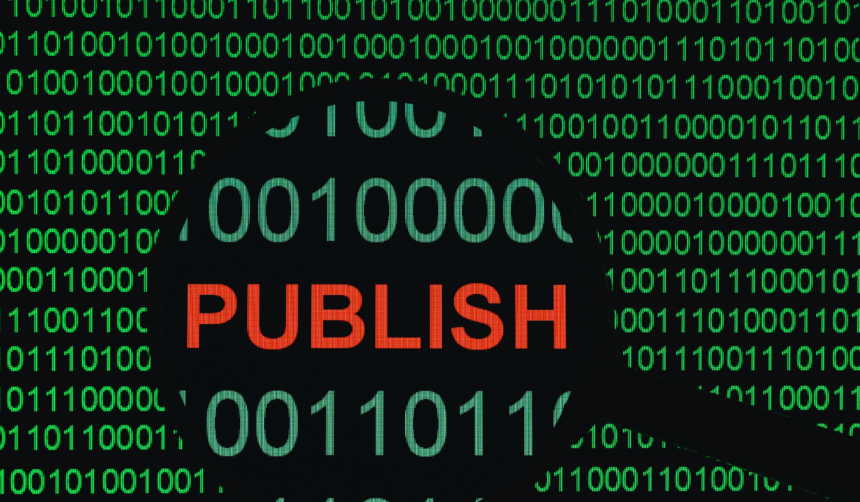A recent article on Futurearticles.co titled “How is artificial intelligence changing internet publishing?” explores the transformative impact of artificial intelligence (AI) on journalism, online publishing, and content creation. The piece underscores AI’s ability to boost efficiency by automating routine tasks in newsrooms and revolutionizing content production. However, it also highlights significant legal, ethical, and security challenges. Concerns include potential inaccuracies, reliability issues, copyright violations, and the erosion of public trust. The article advocates for collaboration among policymakers, publishers, tech developers, and academics to establish clear guidelines and ethical standards to navigate these challenges. It also discusses the delicate balance between leveraging AI in journalism while maintaining human creativity and oversight.
AI’s Role in Enhancing Efficiency and Innovation
The integration of AI into newsrooms holds promise for increased efficiency and innovation. By automating routine tasks and aiding in content production, AI can significantly streamline operations. However, this technological advancement also brings about substantial legal, ethical, and security concerns. A primary issue is the risk of inaccuracies and the potential erosion of public trust. AI-generated content can sometimes include errors or biased information, which can harm the credibility of news organizations. Furthermore, the inadvertent violation of copyright laws is a significant concern. Clear legislative definitions and regulations are necessary to address the use of AI in content production.
Collaborative Efforts for Ethical AI Use
Addressing these challenges requires a comprehensive approach involving policymakers, publishers, tech developers, and academics. Establishing laws that provide clear guidelines for AI transparency and accountability is crucial. News organizations and tech companies must also develop ethical standards and training programs to ensure responsible AI usage. Journalists should be educated on the ethical implications of AI and how to use these tools responsibly.
The Future of Journalism and AI
The future of AI in journalism and internet publishing involves a synergy of human creativity and machine efficiency. AI can assist journalists by offering resources such as visuals, video clips, and data analysis, thereby enhancing the engagement and accuracy of stories. Additionally, AI can identify original information sources and suggest relevant topics, improving the quality and depth of news coverage.
Many leading media companies have already adopted AI for content production. For example, News Corp reportedly uses AI to generate 3,000 Australian news stories per week. This trend extends globally, raising critical questions about the quality and integrity of AI-generated journalism.
AI models like GPT-4o vs Claude 3.5, while proficient in predicting language patterns, often fail to produce consistently accurate information. This limitation was highlighted when CNET faced backlash for publishing error-filled AI-generated articles.
Impact on Click-Through Rates and Advertising Revenues
The media industry’s response to AI in content production is mixed, encompassing both excitement and concern. AI offers benefits like increased efficiency and personalized content delivery but also threatens traditional news business models. A significant concern is the impact on click-through rates (CTR) and advertising revenues.
Traditionally, news websites rely heavily on search engines for traffic. However, AI systems can provide direct answers to users’ queries, potentially reducing the need to visit original news sites. This shift could lead to a drop in click-through rates, affecting advertising revenue models dependent on web traffic. Fewer page views mean reduced ad impressions, diminishing advertisers’ reach through traditional news sites and potentially leading to decreased advertising spending.
Moreover, the data that trains AI models is generated by content creators. If AI systems undermine the revenue streams for these creators, content production could decline, leading to outdated AI models and erroneous outputs. Sustainable solutions are essential to ensure the coexistence and mutual benefit of AI systems and content creators.
Maintaining Journalistic Integrity in the Age of AI
The integration of AI in journalism brings both opportunities and challenges. While AI can enhance aspects of news production and accessibility, it also risks compromising content quality and integrity. As media organizations navigate this complex landscape, ethical considerations must be prioritized to uphold journalistic integrity.
Journalists and media organizations must responsibly use AI to protect public trust. Balancing AI’s efficiency with the need for accurate and reliable content is crucial for the media industry’s future success. Adopting technological innovations should complement, not replace, human insight and editorial judgment in journalism.










